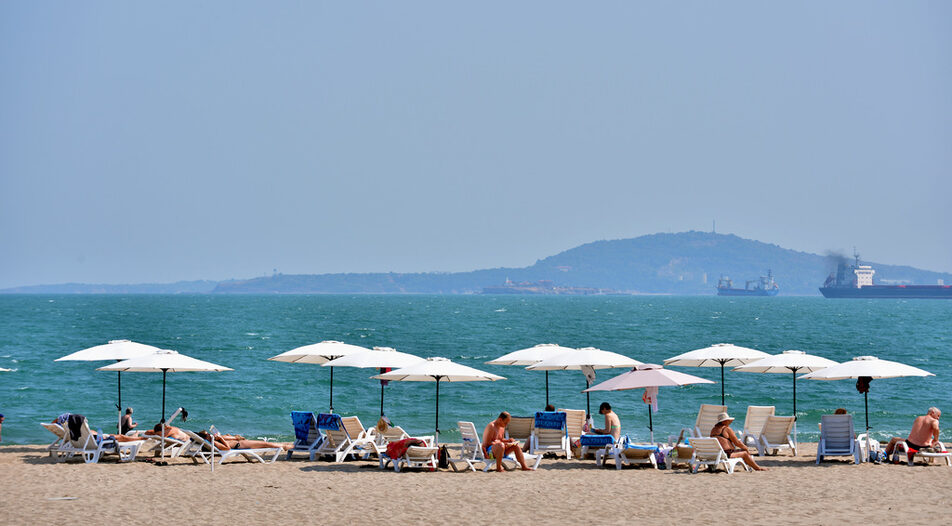- The country's GDP has increased at a slightly slower pace compared to a 2.1% rise in January-March
- Forecasts suggest that the economy will moderate its growth to between 1.3% and 1.8% this year.
The gradual cooling of the Bulgarian economy, which started at the beginning of 2023, continued in the second quarter. The country's GDP has grown at a slightly slower pace of 1.8% year-on-year compared to the annual increase of 2.1% achieved in January-March. On a quarterly comparison basis, GDP grew by 0.4% in April-June, according to flash data published by the National Statistical Institute (NSI). Consumption continues to be the economy's main growth engine, although its expansion is slowing down, while the growth rates of net exports and investments are slightly higher.
The data aligns with expectations - institutions' forecasts are for Bulgaria's economy to slow its growth to approximately 1.3%-1.8% this year from 3.4% last year. The factors for this primarily stem from external sources, such as the slowdown of the European economy, high inflation, and the sharp increase in interest rates, along with China's gradual recovery.
However, Bulgaria's economic growth is currently outperforming the EU average. In the second quarter, European GDP increased by 0.5% year-on-year, while the eurozone's GDP grew by 0.6%, according to preliminary data from Eurostat.
Factors Driving Growth
Consumption remains the main driver of economic growth in the second quarter of 2023, data showed. However, its rate of increase fell to 1.3% year-on-year and 0.4% on a quarterly comparison basis. These figures correlate with data on wage and household income which continued to rise above inflation, marking a 8.5% annual increase as of July. The average salary, for instance, has increased by over 13% annually, reaching 1957 levs for the period under review. While the growth rate is expected to fall slightly compared to earlier record highs, the shortage of labor compels businesses to keep hiking wages.
Additionally, pensions increased by 12% from July, and there are expectations of a substantial rise (by nearly 20%) in the minimum wage from the beginning of 2024, which will also boost household income. Another factor is the ongoing credit expansion, notes Lachezar Bogdanov, chief economist at the Sofia-based Institute for Market Economics (IME). "Despite the clear trend of interest rate hikes in the eurozone, Bulgarian commercial banks stick to historically low mortgage interest rates, and the total value of extended credits has increased by 18% in annual terms by the end of June," he says.
The contribution of net exports is also positive, although goods exports are showing declines. In nominal terms, a yearly decrease was recorded in May, the first since the COVID crisis, which deepened to 3.1% by June. However, this is due to commodities that delivered record price increases last year-fuels and electricity, edible oils and fats, as well as the traditionally strong chemical industry-while sales of machinery and consumer goods continued to grow. These processes are also reflected in deteriorating industrial production indices. "The situation now can be described as 'trimming of the peak' or an exhaustion of the cyclical factors from last year, which returns production activity to levels from the beginning of 2022, but about 6% above the average for all of 2021 and 8% above the average for 2019," explains Bogdanov.
Forecasts
As we said, institutions' forecasts are for Bulgaria's economy to grow at a slower pace this year compared to 2022, in sync with the evolution of the European economy. While the eurozone managed to avoid a deep recession, indicators for the economies using the common European currency are still volatile. Industrial production is declining, while the labor market is overheating. During the first quarter, the main growth drivers in Bulgaria were construction and services. Whether they remain the same in April-June will become clear only when more detailed GDP data are published by the NSI next month.
- The country's GDP has increased at a slightly slower pace compared to a 2.1% rise in January-March
- Forecasts suggest that the economy will moderate its growth to between 1.3% and 1.8% this year.
The gradual cooling of the Bulgarian economy, which started at the beginning of 2023, continued in the second quarter. The country's GDP has grown at a slightly slower pace of 1.8% year-on-year compared to the annual increase of 2.1% achieved in January-March. On a quarterly comparison basis, GDP grew by 0.4% in April-June, according to flash data published by the National Statistical Institute (NSI). Consumption continues to be the economy's main growth engine, although its expansion is slowing down, while the growth rates of net exports and investments are slightly higher.












